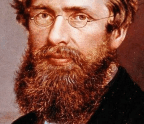


IN CONTEXT
In July 1962 the USSR premier Nikita Khrushchev, in agreement with Cuba’s leader Fidel Castro, made the fateful decision to place nuclear warheads in Cuba, just 90 miles from the US mainland. The Americans' discovery of the weapons in October 1962 sparked a 13-day standoff between the superpowers of east and west that became known as the Cuban missile crisis. It is widely regarded as the most dangerous period of the Cold War.
On 16 October, US president John F Kennedy convened his closest advisors in a secret body later known as ExComm (Executive Committee of the National Security Council), to discuss a response to the Soviet act of aggression. "Go to general war," was the advice of some of the president's closest advisors, who pushed for air strikes or a full-scale invasion of the island.
After nearly six days of top-secret meetings, Kennedy - who had come to regard a nuclear strike and descent into war as "a final failure" - favoured a naval blockade. He delivered the news to the world in a televised speech on 22 October 1962; Cuba was cut off from any military aid from its communist ally in the east, and America had avoided a declaration of war.
A tense series of letters between the leaders followed, with Khrushchev and Kennedy eventually reaching a diplomatic compromise in which the Soviets agreed to remove missiles from Cuba, and in return Kennedy secretly agreed to remove American nuclear missiles stationed in Turkey. The crisis was diffused, and the world was brought back from the brink of nuclear war.
Can you introduce readers




